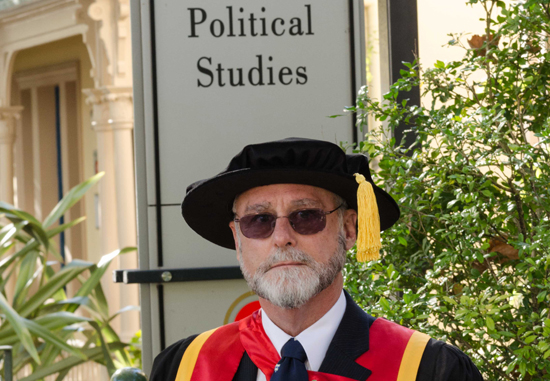
Gavin Ellis
OPINION: AUCKLAND (Pacific Media Centre Online /Auckland University / Pacific Media Watch): There has seldom been a time in the past century when journalism has not been "in crisis".
Short-comings have been found in journalism and its institutions since Upton Sinclair wrote his 1919 muck-raking exposé, The Brass Check, with its brothel-keeping allusions.
Now, once again, journalism is"‘in crisis". The Leveson enquiry is grappling with allegations of criminal wrong-doing by Britain’s tabloid press but there is a broader dilemma that makes this "crisis" different: The issue may be the survival of professional journalism.
The crisis was underway when I retired from daily journalism in 2005. The internet had already eroded newspapers’ "rivers of gold" – classified advertising – and digital technology had fragmented the market that had previously been held by free-to-air broadcasters. All traditional media had to compete more aggressively for shrinking audiences and, as a result, the journalism changed to become more entertaining and attention seeking.
Since 2005 the editorial budget cuts made by profit-driven owners of news media companies throughout the English-speaking world (and beyond) have seen newsroom resources fall below the point where we can credibly expect journalists to meet all of the public service roles that were traditionally expected of them. Whole areas of reportage – such as courts and local government meetings – have been sidelined and specialist journalists have become generalists.
Newsroom numbers have fallen to the point where the vast majority of journalism graduates in the near future will work on the other side of the fence in public relations or marketing.
Changing direction
I saw my retirement from daily journalism as only a waypoint, a time to change direction. I came to the University of Auckland to gain masters then doctoral degrees in order to add scholarship and theory to my practical experience in the hope that I can contribute more constructively – and objectively – to the debate on journalism’s survival.
My doctoral thesis examined the role of trustee-ownership in preserving what I called democratically significant journalism. The topic was chosen because I have become convinced that the problems facing journalism cannot be solved without also addressing the structures within which it resides.
The early history of journalism was driven, as Alexis de Tocqueville observed, by the need for political and intellectual associations to have a means of communication that "echoes a doctrine or opinion common to a large number of men". This civic function prevailed, along with a growing role as a check on power, but was overlaid by commercial interests around the turn of the 20th century. When media companies became listed on stock exchanges the profit motive became their principal driving force.
While the good times rolled – and advertising revenue kept rising – this did not present a problem and the incentive to become a public company became almost irresistible. Companies that were once owned by individuals or small groups for civic purposes now passed into the hands of shareholders who saw the enterprises as merely another (often lucrative) investment in a manufacturing enterprise.
In the process news became another commodity, to be marketed and sold like other manufactured goods.
Unfortunately, the good times have not continued to roll and the business model that governs mainstream media companies has, by some estimations, deep fissures in it or, by other accounts, is irrevocably broken.
Fissures, yes, but not yet completely broken. What is evident, however, is that, while the revenue growth that drew investors to newspapers, radio and television stations has faded, the expectation of a return on investment remains.
Hence, recurring cuts have become commonplace in newsrooms and content has become increasingly populist in a desperate bid to attract dwindling audiences. Professional public issues journalism is under increasing threat while it resides primarily in corporate structures designed for other times.
For many years academic institutions, the University of Auckland included, have studied what is wrong with journalism. There is now a pressing need to study ways of rescuing journalism and placing it in structures that recognise both new commercial realities and the old civic purposes to which it should be put.
If that is not done, a time may come when academic institutions study what is wrong with society after professional journalism has gone.
Dr Gavin Ellis, a senior lecturer in the University of Auckland's Department of Political Studies, is a former editor-in-chief of The New Zealand Herald. His PhD was conferred on May 4. This commentary is republished with permission from the May 17 edition of Uninews.
"The Ghost in the Chair" doctoral thesis on trusteeship media ownership
This work is licensed under a Creative Commons Attribution-NonCommercial 3.0 New Zealand Licence.




